
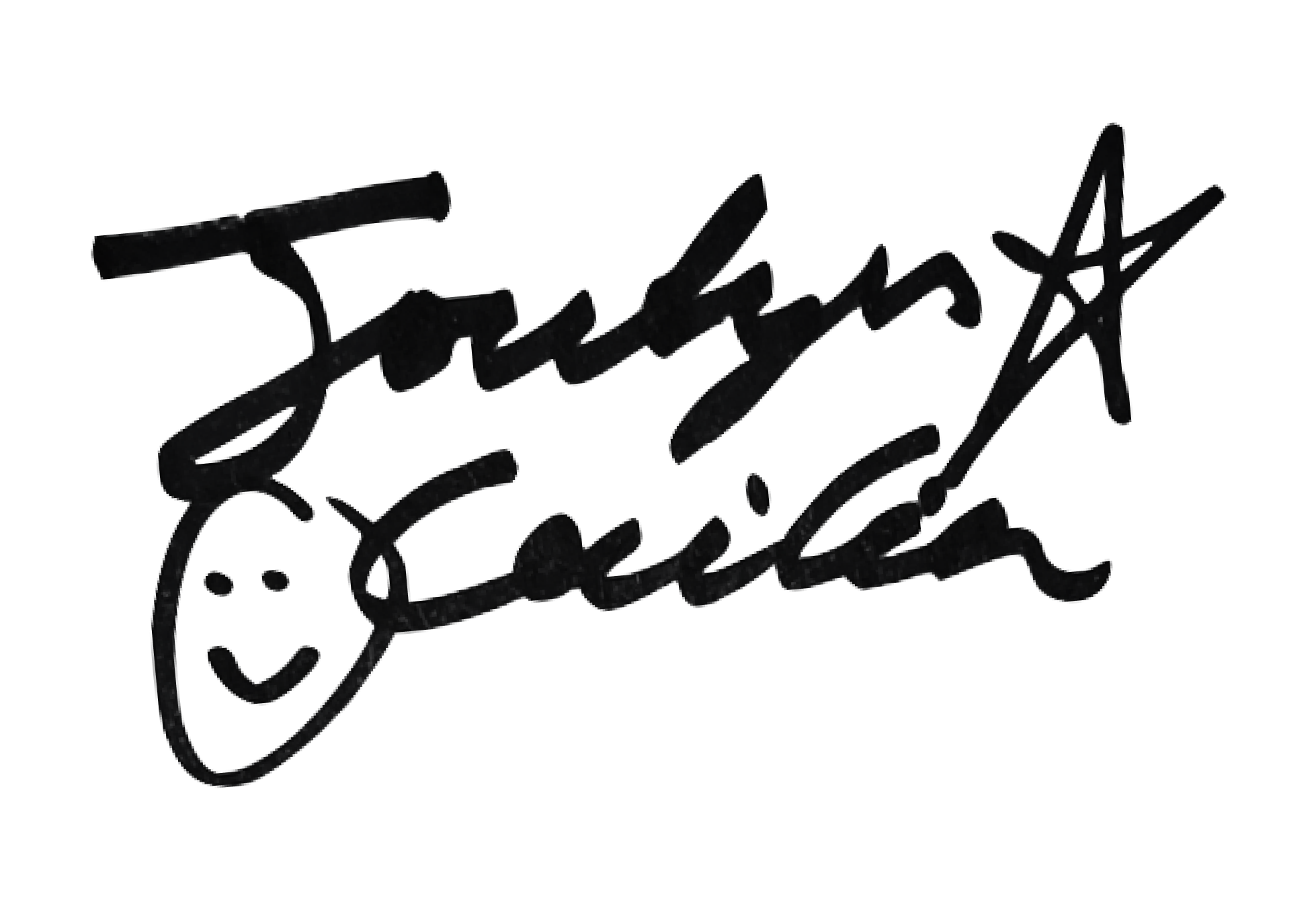
It all started in middle school. I thought I was so cool because I kept a leather diary. I wrote poems, it all rhymed. There's literally many years worth of poems in this book. Honestly I think that they were kind of practice. I didn't realize it at the time, but it helps me so much. I think that doing it gave me a head start, because by the time I started putting music to the words, it was much easier because I had so much practice. I knew exactly what I wanted to say, and I knew how to say it, because of 3 years worth of everyday writing.
And then for the music. It's funny because now that I think about it, they both developed on their own, my music side and the lyric side. I was singing every weekend in church, and that was when I was introduced to popular music in the sense of chords, and numbers, more so than just the notes on staff paper, which is what I'd been used to growing up with classical music. That helped build the foundation of what harmonies were from the interval standpoint, not just hearing it and thinking: Oh, that sounds good, or that sounds bad.
And eventually songwriting came around, and it just made a lot of sense. Obviously my first songs were really bad compared to the stuff I write now. But I think that with so much background it was very easy for me to start writing. I haven't written in my diary in a long time because now I just write songs.
So do you remember the first song you wrote? What was it like to write it?What I consider to be my first song was just a melody pretty much. Now I can think about it, and I could add chords if I wanted to – not that we ever need to revisit that. And even now, when I songwrite, it all starts with the melody usually, and then lyrics, and then what chords match my melody idea.
Do you think that comes from you starting out by playing more melodic type stuff on the piano?I think so. Maybe one day I'll be more creative with my chords and be able to start with that. But for right now most of the songs are heavy in lyric content, and the music comes along the way. A lot of people topline, which means that they put stuff into a DAW and layer stuff up from a core. Have you seen those tik toks where they’re like 'Oh, my gosh! I had this idea and like, what if the baseline started like this…' And then they build it.
I think I’ve seen something like that.People really do that. Less animated, probably. But they put stuff until it sounds kind of cool and then they'll just start recording and just singing over, and just loop it over and over again, and then find something that sticks and then go with that, which is something that I would like to try.
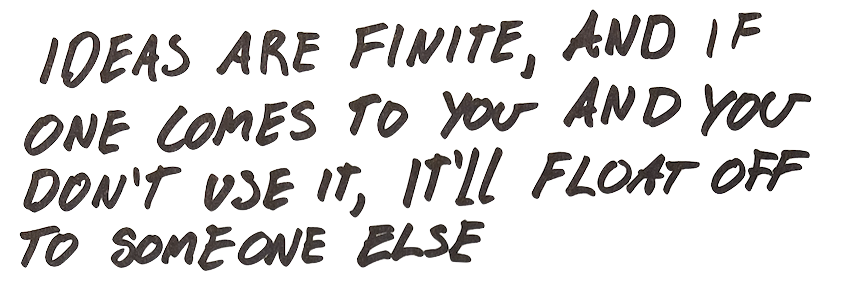 Do you typically have a lot of lyrics that you're tossing around and a lot of melodies? Or do you start
with one and then you think, okay, what should the lyrics to this be?
Do you typically have a lot of lyrics that you're tossing around and a lot of melodies? Or do you start
with one and then you think, okay, what should the lyrics to this be?
It's both. It depends. You start to look out for really specific words, or events, or phrases that just stand out. I have a super long list of song seeds and lyric ideas. I'll just be walking down the street and hear somebody say the most random word and for some reason at that time of day at that moment in my life it sticks out to me, and I write it down. I heard one time at a songwriting workshop that ideas are finite and if one comes to you and you don't use it, you'll just forget about it and it’ll float off to somebody else, and then they'll have that idea and you'll never even know it was yours at one point. That kind of freaked me out for life. So I try to write down everything. And because you are a person you're going through certain things in your life, when you sit down and think ‘it’s time to write a song,’ you'll open those notes, and you'll notice that all 10 latest words or phrases that you have all relate to each other and could be used together. That's usually where a verse or chorus or bridge comes from. And then sometimes I'll write a verse or chorus or bridge, and then just put it to the side. And then, a couple of weeks later, write an alternate thing and be like, ‘Oh, wait they match haha!’ Like for "Table Talk". The verse was born many months before the chorus ever came. And then, at one point in my life I was writing, and I was like, ‘I need a verse, what about that one verse that I really liked, but never put it anywhere?’ And then I just put them together, changed a couple of things, and it worked!
I was really good friends with this guy, at the peak of our very platonic friendship. I was like, okay realistically, am I really gonna keep in touch with this guy for the rest of my life? No. And he's going to college and so it may be sad, because we were really good friends at that point. I hope that even if we never speak to each other again after this year, that you'll always remember me and that your kids know my name and have a sense of ‘Oh, yeah, when I was in high school my best friend's name is Josie’. You know how you know the names of some of your parents' friends from high school or college? That kind of idea, which is very specific, but at the same time is something that a lot of people can relate to. And then, when I sang it at our original showcase, it changed its meaning in my mind, because it was the last show I had with the seniors. And so then it was less about this one person, and more about just saying goodbye to people that you love. And then obviously I started crying because I'm like 'my senior friends are graduating.'
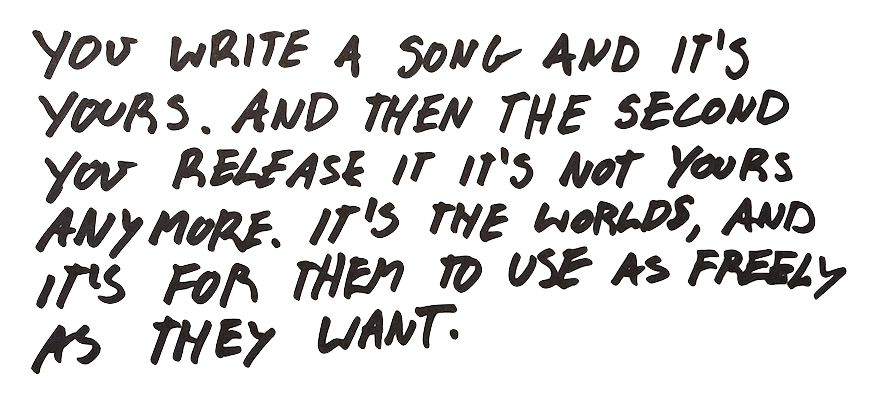
I think that I forgot who said this. Probably like John Legend – or, I guess Ed Sheeran – said you write a song and it's yours. And then the second you release it out in the world it's not yours anymore. It's the world's, and it's for them to use as freely as they want. And that's what's so intriguing about Harry Styles versus Shawn Mendez, because Harry Styles is so mysterious. You know a little bit about him, but you don't really know that much about him, you know? And you can speculate: Oh, I wonder what experience sparked this song or I wonder who it’s about. I wonder if she is a person or a place or a thing, and I wonder what it could mean for me. I think that's why so many people connect to his music. Because they're able to envision their own situations through his songs. And I think that the reason why Shawn Mendes’s last album was a total flop was because all of the songs were so obviously about Camila Cabello and everyone knows about their relationship because it's so public. It's like, dude, that's an obvious reference to your award ceremony or that tiktok you posted. And then it just loses it's magic, because you know exactly what it's about, and then you can't connect to it, because you know that he wrote it for the intention of her you can’t say like, 'Oh, yeah, I could use that song for my own because it's not mine. It's Shawn and Camilla’s. It's not anything that I could have.' That's what made it lose its personality.
I mean yes, and no. I'm not famous enough for people to care that much. In general when you're writing, unless it's very intentional you tend not to use anybody's name. You wanna be specific, but not too specific. You wanna use specific words, but not specific feelings. You want to use feelings that people can relate to. You want it to be digestible for your audience, but also specific enough to capture their attention. Not just be generic, which I think is hard to do and I think that if I go back to my old songs, a lot of them are either super obvious or super generic, and now it's trying to find the balance between the two.
So is finding that balance just a matter of experience?It's also, balancing with cheesiness a little bit. One time a friend showed me her song and she rhymed start with heart and I was like 'no we're changing that.'
P!nk did it first!Yeah some of those words are just certain things that you don't rhyme. Heart is big one. There's a couple of no-no words. ‘Breaking my heart’ is a bad line, don't ever say that. You know, really generic lines like that. When you rhyme too exactly it also loses its conversational tone. With the type of music that I write, you want it to kind of be conversational. A very eloquent conversation. You want to use some words that are a little bit funky to throw some texture in there but you don't want to make it sound like it's a business plan, or an essay.
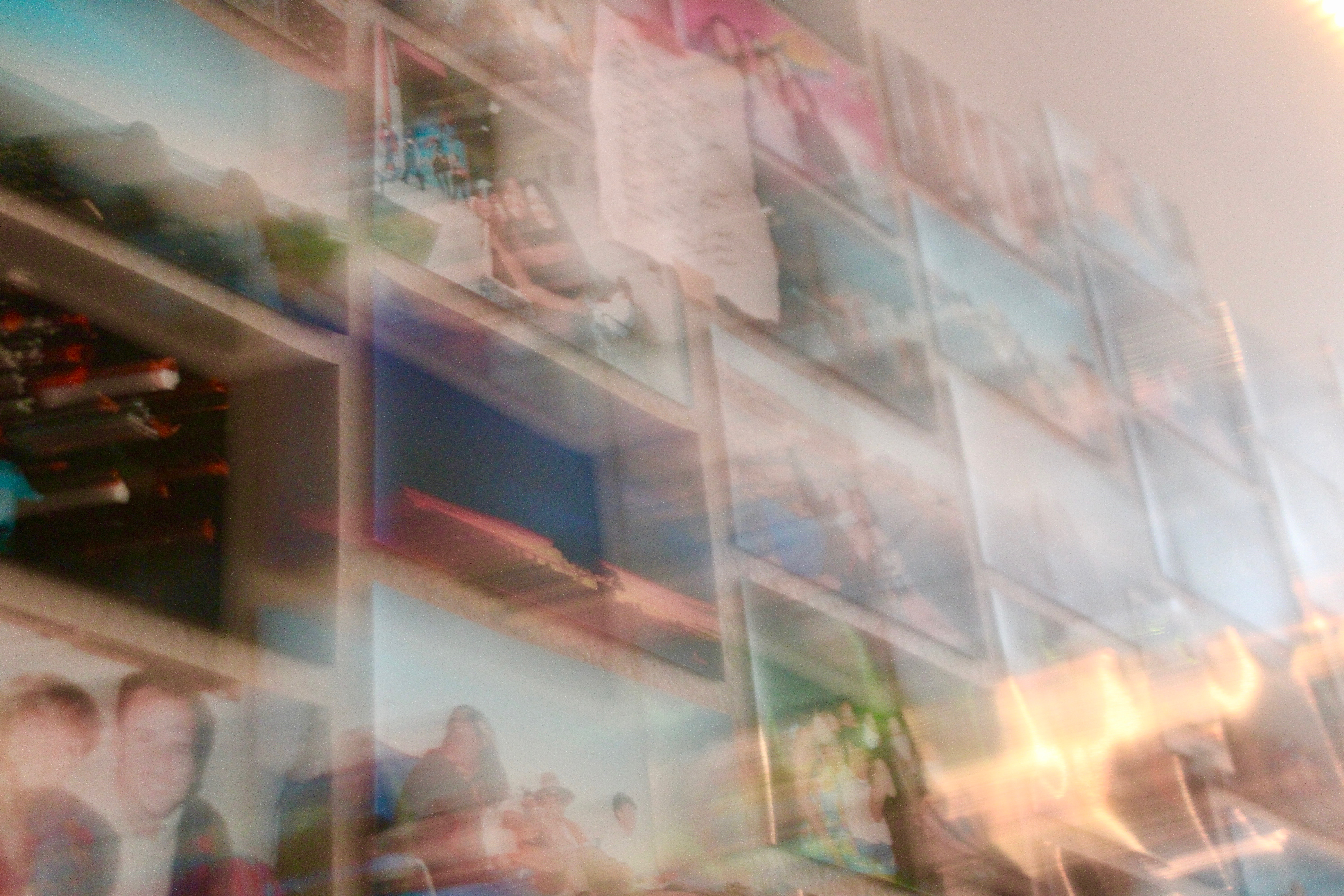 source: Jocelyn Cecilia
source: Jocelyn Cecilia
Indie pop mostly. I think I lean a little bit more to the pop side of Indie pop, just because I try to write a little bit more mainstream. I have a good friend who also writes indie pop, but writes more on the indie side, so the phrases are longer. It's a bit more word vomit type, stream of consciousness songs, and a little bit less structure, which has a beauty to it too. I'm just a more clean-cut person. I don't have a problem condensing what I want to say into a few short words. If you go into pop songs the word count is maybe 150 words max. Some of those Phoebe Bridgers type songs have 300 words, maybe more. They're both good and I listen to both. What I make is like pop but not mainstream pop, which is why I call it indie pop, or even folk pop, because it has more of a heart to it and it's a little bit more detailed than mainstream pop songs would be.
…which is why Harry Styles is so cool because he writes indie pop, but with a mainstream pop production, which is why he makes such bangers that everyone wants to listen to. Even if you're not listening to the lyrics, it just sounds good. I don't know if you listen to the latest album, but it's all 70’s disco pop. It is so good. It's like so artistic and I think that as an artist I really appreciate that more so than Shawn Mendez, who was just has basic writing and basic production
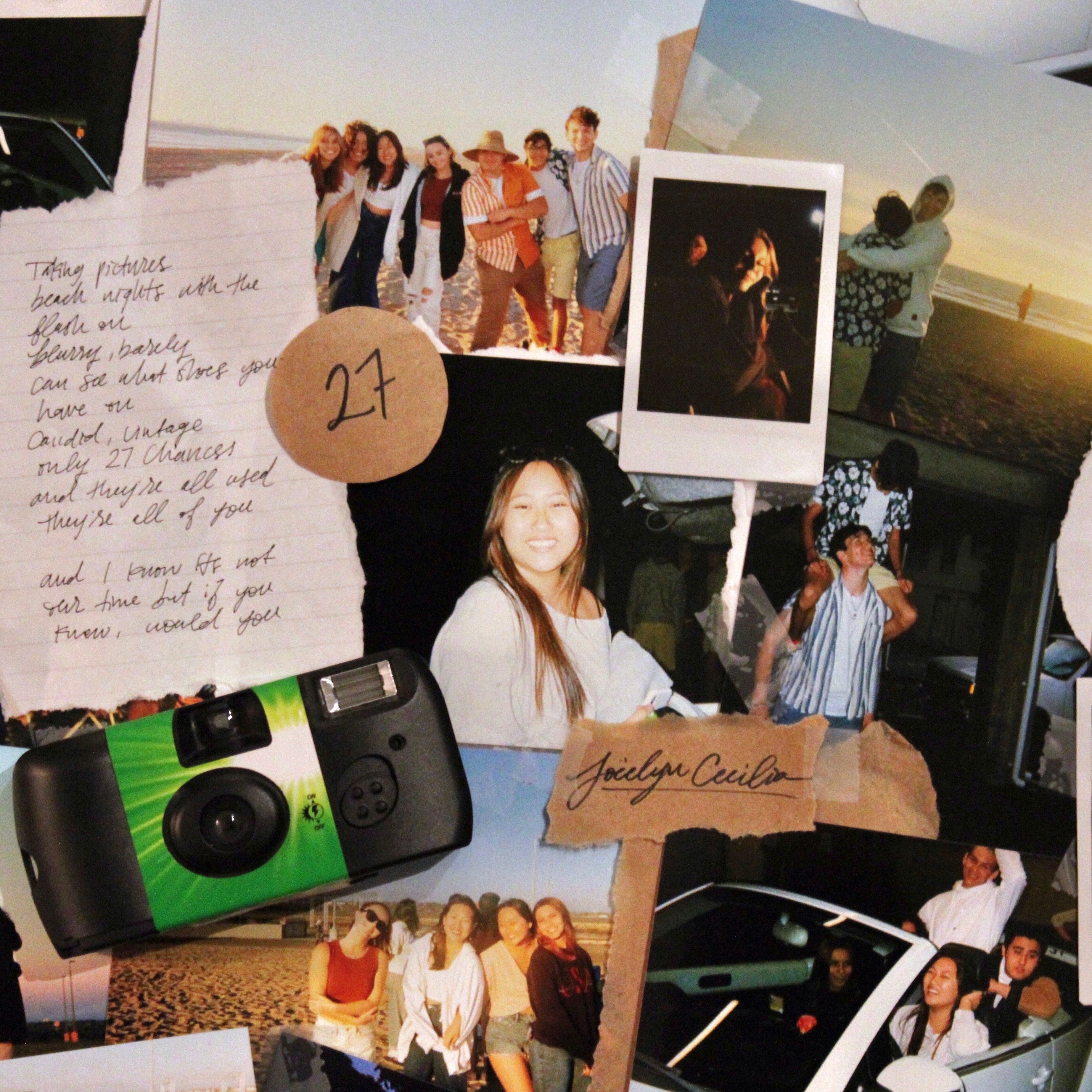 source: Jocelyn Cecilia
source: Jocelyn Cecilia
All of it. You want to keep the audience on their toes. With Harry Styles’ stuff, the harder you listen the more you'll uncover. You're never bored sonically. Even when he's not singing in between verses there's little sounds like he did a little distortion over there while the background locals are doing something over there and the kick drum skipped a beat there. You're never overwhelmed, but you're never bored, and you're always constantly being surprised by stuff left and right. He plays a lot with panning too. In the beginning of "Music For A Sushi Restaurant" you can hear it on the opening drums. If you listen through a phone, you can't tell, but if you're in your car you can hear the drums going like left right, left, right, and then they build to the center and then the song starts, which is not even original but it's just like cool. Every decision that he makes is so intentional and that's what I appreciate about his music. I also listen a lot to Gracie Abrams and Holly Humberstone, and they do the same things, those little pieces of production like the wood block only in the chorus or whatever. It’s those things that just make it much more textured that I listen for production wise. For the most part like lyrics are good all the way around. Every once in a while there's a song that's like yes, that line right there. But I think lyrics are easier to edit. If you listen to basic pop songs like, I don't know Dua Lipa. Okay, maybe that's a bad example. Shawn Mendes.
This is becoming a Shawn Mendes diss interview…I love the guy, but I'm gonna say this is his diss track. But there's nothing sonically entertaining. Okay, you start with the synth, and you add the bass. And then you have the drums, and then you add the vocals, and then you take away the drums, and then you take away the bass, and then you end with the synth. Yay! That's pretty much all you got. Clearly people like Harry Styles. These are all our sticker orders from yesterday!
[She holds up a tall stack of sticker sheets. Josie sells stickers, including Harry Styles themed ones - you can buy them here!]
Keep writing and don't get frustrated if you can't finish a song because you don't have to write songs from start to finish in one sitting or even consecutively. That's a struggle for a lot of people because they hate their songs when they first start writing. And they’re like ‘this is trash.’ They throw it out. But I would say don't put it in the trash. Put it in the recycle bin, and then you can always go back and use it again. Maybe change it a little bit, but those ideas aren't bad. They're just not right. You never know, you might need something. Not being too hard on yourself in the beginning is good.
Rhyme Zone is your best friend. When you're on Rhyme Zone, always go for the near rhymes tab. The first section is the exact rhymes. If you keep going, you'll find all these other cool words that totally still work that are much more interesting, and it'll elevate your songwriting, because if you use near rhymes instead of exact rhymes, it sounds more advanced like “Oh, wow! He's a songwriter.”
Also, work with other people. Collaborate and don't don't feel the need ego-wise to do it all your own. I used to think when I wrote a song it had to be 100% mine, otherwise it's not as impressive. But if you were to put up a song with somebody instead of doing it on your own, first of all, it might be better than anything you could have come up with by yourself. Now you only have to pay for half the studio time. Now, when you send it out to people, you have double the amount of connections.
And if it's not good, you can say, Oh, that was their fault!Yeah, exactly. If someone is like “I like every part of this except for that” you can be like ‘Oh, that was their idea. They did the whole bridge. Don't worry about it.’ So collaboration is great.
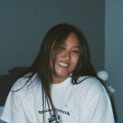 source: Jocelyn Cecilia
source: Jocelyn Cecilia